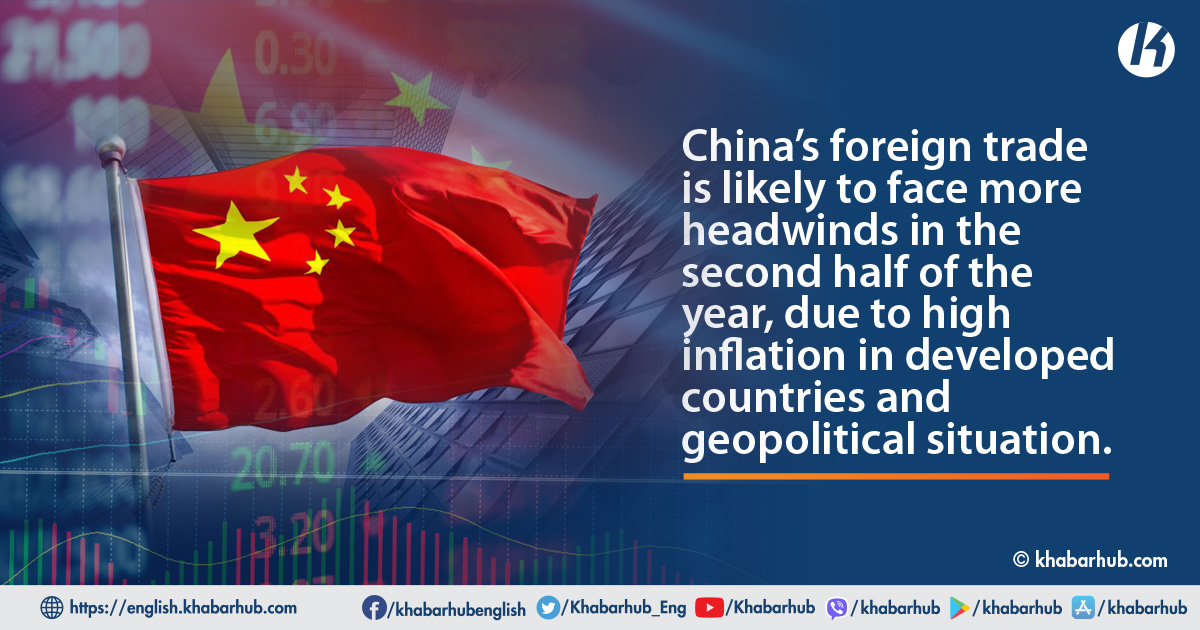With worsening economic imbalances, China’s economy continues to lose momentum. Disappointing June data, including low retail sales, falling export orders and slow industrial production indicate stalled economic recovery.
China’s retail sales grew 3.1%, falling sharply from a 12.7% increase May.
Though industrial output growth quickened to 4.4% in June from 3.5% in May, the demand remained tepid. Even though investment by state owned enterprises grew by 8.1% in the first six months of 2023, private fixed-asset investment shrank by 0.2%, indicating weak private business confidence.
China’s exports fell by 12.4% in June, the highest drop in three years, while imports fell by 6.8%.
China’s foreign trade is likely to face more headwinds in the second half of the year, due to high inflation in developed countries and geopolitical situation.
Inflows of Foreign Direct Investment (FDI) also dropped by 5.6% in the first five months of the year.
The perception that ‘doing business in China has become much riskier’ is choking the flow of capital into the country.
The MSCI China Index, a gauge for foreign investment in global Chinese companies, is down by about 6% till June.
Xi Jinping’s policy to rebalance the economy away from debt-driven investment towards domestic consumption has not been successful due to the inability of the leadership to expand social welfare and health care provisions, leading to high levels of precautionary savings.
China’s equity market has been underperforming compared to other global markets this year, suggesting that weak growth prospects and lack of policy stimulus have already been fully priced in.
Chinese stocks have fallen more than 20% from their peak in late January.
China’s IPO applications slumped by a third in the first half of 2023, as volatility in earnings, a slowing economy and tighter regulatory scrutiny deterred companies.
Zero rate of inflation in June and falling factory-gate prices have fueled concerns about the risk of deflation.
Deflation would significantly hamper economic growth as it signals weakness and lack of confidence in the economy.
It would lead to lower business profits, further pushing down wages and increasing unemployment.
Domestic travel spending during the June holiday this year for the dragon-boat festival was lower than pre-pandemic levels.
Car sales and residential real estate sales declined despite the traditionally busy season.
Expansion in the services industry has slowed as well. The revenue of the service sector, which is dominated by small, midsized and individual businesses, has fallen substantially.
This has made this sector cautious about hiring and expansion since the removal of zero-Covid restrictions.
According to China’s National Bureau of Statistics, youth unemployment jumped to a record 21.3% in June from 20.8% in May.
If the economy continues to lose momentum in the long term, the unemployment problem is likely to get more serious, which would challenge the social stability in the country.
The expression of discontent by the youth of the current situation in the social media is likely to trigger a wider loss of confidence in the economy.
Xi Jinping’s emphasis on the state owned enterprises at the expense of the private sector is unlikely to revitalise economic growth as the productivity of these corporations is much lower than that of private firms in China.
Xi Jinping’s policy to rebalance the economy away from debt-driven investment towards domestic consumption has not been successful due to the inability of the leadership to expand social welfare and health care provisions, leading to high levels of precautionary savings.
Due to the pessimism among the population on the state of the economy, domestic consumption has remained weak.
Local governments are themselves under financing pressure.
They had come to rely on land sales for revenue, but that source of revenue is also drying up due to the housing downturn.
The Chinese economy is likely to face an extended period of weak growth due to loss of demographic dividend, pushing away from capital-intensive growth, and a gradual deceleration in productivity growth.
The government’s ‘Common Prosperity’ policy and efforts to increase consumption are not backed by structural economic reforms, which have been stalled due to high total debt of the country, estimated at around 350% of GDP.
It is becoming more difficult for the Xi Jinping led government to find a solution to the slowing economy.
Xi Jinping’s emphasis on the state owned enterprises at the expense of the private sector is unlikely to revitalise economic growth as the productivity of these corporations is much lower than that of private firms in China.
All eyes are on an expected Politburo meeting later this month, when top leaders could chart the policy course for the rest of the year.









Comment